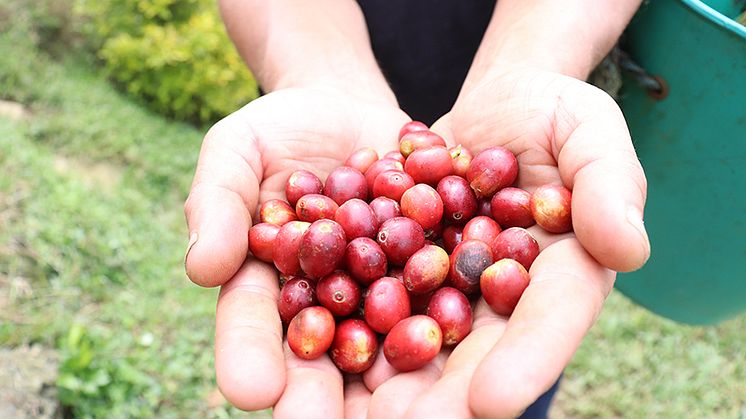Reclaimed coffee sacks
All companies have waste material that they don’t know what to do with. Swedish based coffee company Löfbergs teamed up with Stich N Stones and figured out that they can upcycle their coffee jute sacks into Coffee Sack Caps.
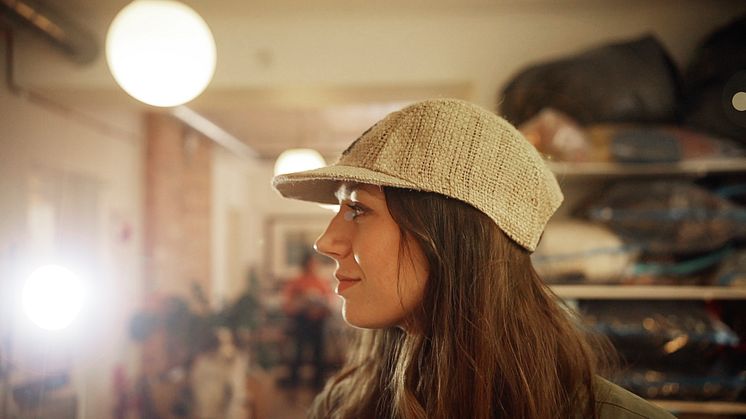
All companies have waste material that they don’t know what to do with. Swedish based coffee company Löfbergs teamed up with Stich N Stones and figured out that they can upcycle their coffee jute sacks into Coffee Sack Caps.

Disposable cups often contain a plastic barrier layer, which makes them more difficult to recycle in a proper way. Unnecessary according to Swedish based coffee group Löfbergs, which has found a new solution that is completely plastic-free and easily can be fully recycled. It means Löfbergs takes another step towards the vision of being 100 per cent circular and generating zero waste.
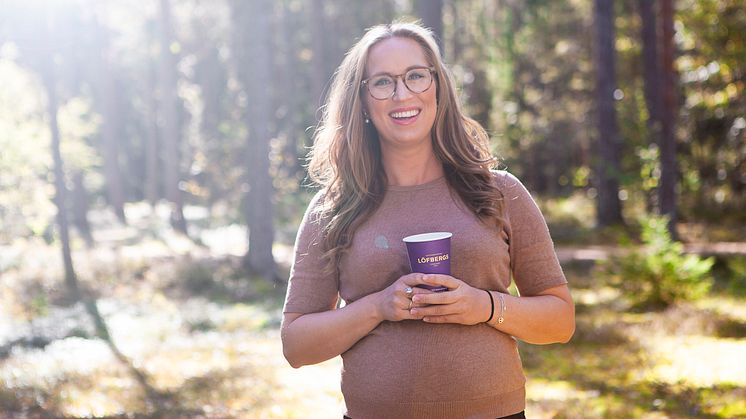
Launching in October 2020, the Swedish coffee group Löfbergs rolles out a collaboration with Sproud throughout Löfbergs Out of Home market in Sweden, e.g. Foodservice, Chain customer, Facility Management, Vending, Public Sector, Free Market. With a broad assortment of sustainably sourced speciality coffee and comprehensive services, Löfbergs has reached the position as market leader.
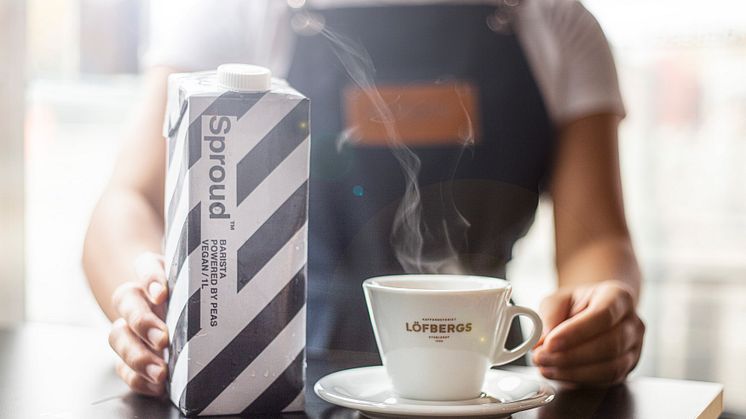
Löfbergs joins IKEA in the groundbreaking “10x20x30” initiative to root out food loss and waste. 10x20x30 goes hand in hand with Löfbergs´s ambitious initiative Circular Coffee Community with the clear-cut purpose of eliminating all waste related to coffee. 10x20x30 is led by IKEA and 10+ of the world’s biggest food retailers and providers. Löfbergs is one of IKEA’s major suppliers for coffee.

Swedish based coffee group Löfbergs is behind the ambitious initiative Circular Coffee Community with the clear-cut purpose of eliminating all waste related to coffee. To ensure focus and accelerate progress the company appoints a Chief Innovations and Circular Transformation Officer as part of the group management team. Löfbergs represent six brands in ten core markets in Europe and Canada.
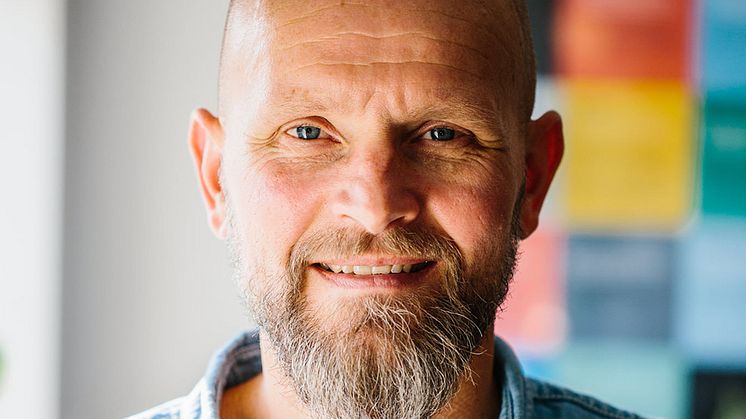
In 2001 Löfbergs co-founded International Coffee Partners (ICP), where eight family-owned coffee companies contribute to the development of small-scale coffee farmers. ICP’s vision is to improve smallholder farmer families’ livelihoods. ICP is committed to long-term projects and long-term impact in the coffee sustainability sector. That’s why ICP recently reworked its Theory of Change.
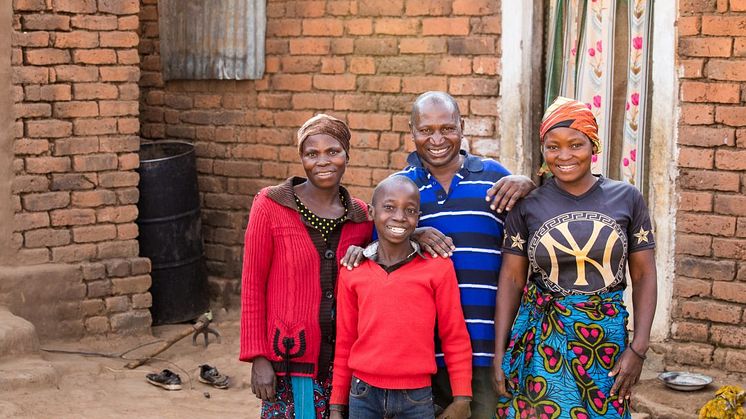
Löfbergs shares its sustainability successes and challenges in its sustainability report. The family-owned coffee roaster is now being awarded the Hallbars Sustainability Report Awards for its latest report. As a national winner, Löfbergs will be representing Sweden in the international final.
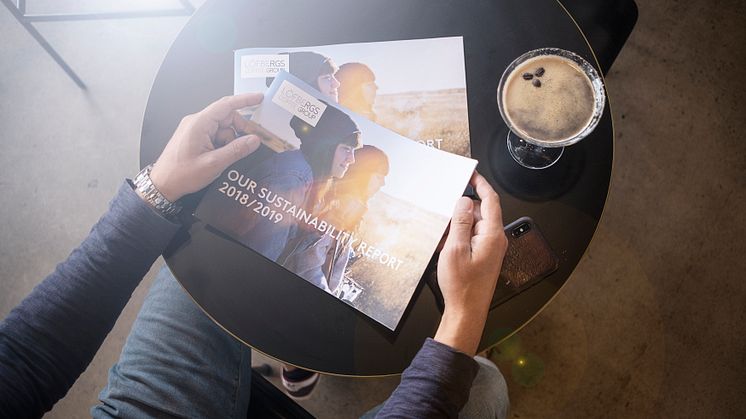
In 2001 Löfbergs co-founded International Coffee Partners (ICP), where a number of other family-owned coffee companies contribute to the development of small-scale coffee farmers. ICP now has released its Annual Report 2019. In the past year, ICP-projects reached almost 49,000 smallholder coffee farmer families in six regions around the globe.
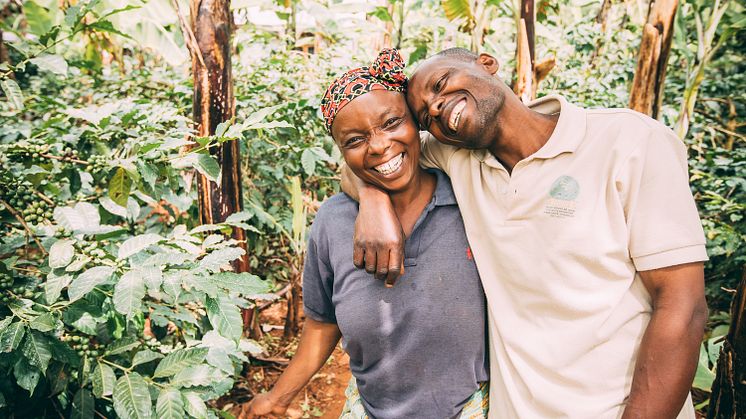
The ninth climate disclosure by the Haga Initiative shows that 11 of 12 member companies have reached the climate target by 2020, which is one year faster than planned. The coffee roaster Löfbergs is one of them. Altogether, the companies of the Haga Initiative have reduced their own emissions by 1.5 million tonnes of CO2e since they started measuring.
- Ten years with transparent climate targe
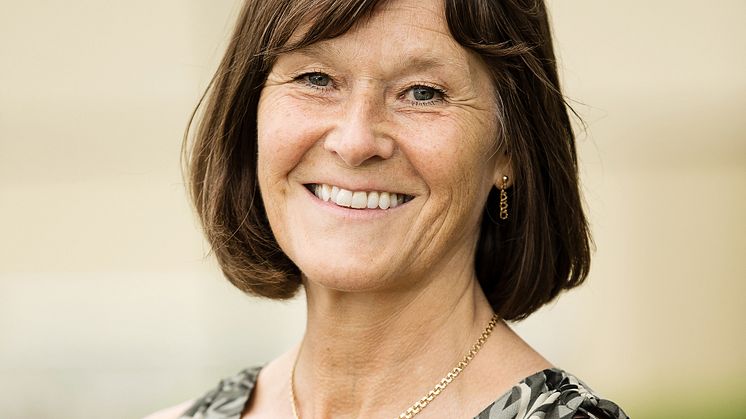
Sweden is one of the top coffee consuming countries in the world. But are at the same time throwing away 300 million litres of coffee every year. An unnecessary waste of the earth’s resources. Löfbergs is now presenting an initiative to help people make the most of their coffee. The coffee is not only regarded as an end product, but also as a raw material for new products in a circular economy.
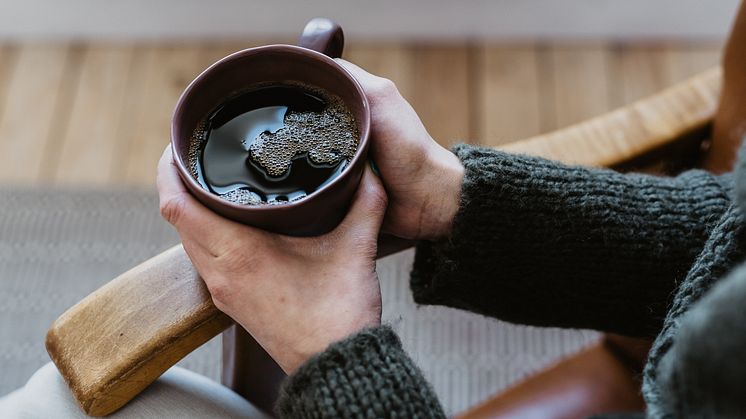
Bake with leftover coffee. This a recipe of a festive chocolate ball cake. It works great to use yesterday’s coffee that you have stored in the fridge.
Ingredients:
300 g room temperature butter
3 dl white sugar
1 tablespoon vanilla sugar
2 dl cacao
1 litre rolled oats
1 dl leftover coffee
Here’s how:
Line the cake pan with parchment paper
Beat the ingredients to an e
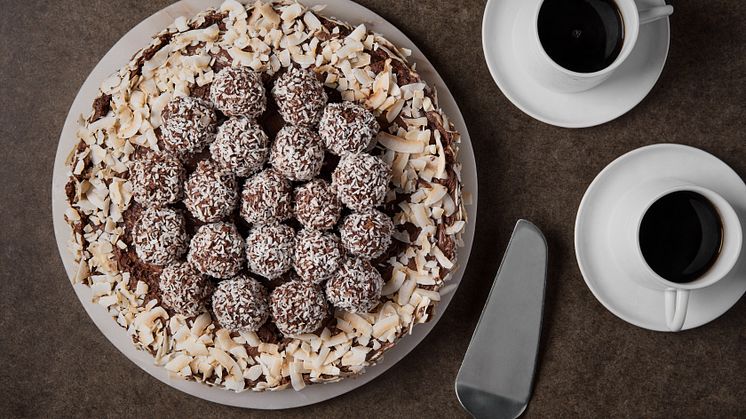
Syrup on leftover coffee offers a rich coffee flavour and can be used for both hot and cold beverages. Or why not pour it over a cake or some ice cream?
Here’s how:
Mix 4 parts organic sugar with 6 parts leftover coffee. Espresso coffee offers the most flavour, but fine-grind coffee works great too. Or why not mix the two?
Boil down for 10 minutes and pour the syrup into a clean bottle.

Drinks made of coffee grounds are low in caffeine and have a mild coffee flavour.
Here’s how:
Fill the portafilter with grounds just as you would when making an espresso.
Shorten the brewing time to 5 seconds.
Add 4-5 cl coffee syrup.
Add frothed milk, perhaps oat or pea milk, which are rich and bring out the flavours in a nice way.
With less sugar
Mix vanilla sugar and cardam
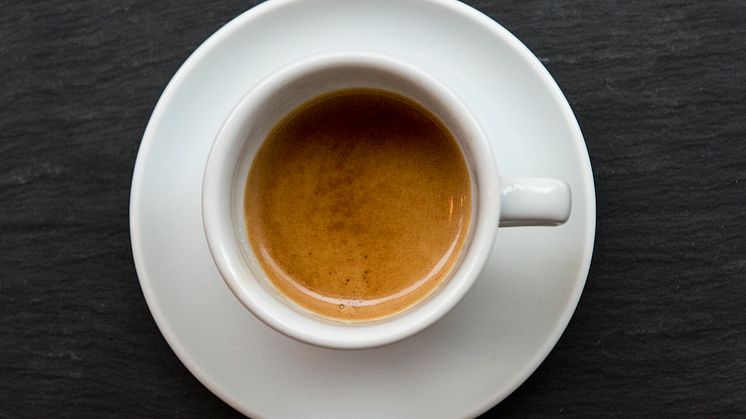
A simple, climate-smart and cheap way to give stained table cloths and clothes new life with coffee grounds.
Here’s how:
Boil a big pot of water.
Soak the cloth or other fabrics and throw on a significant amount of coffee grounds (leftover coffee can also be used).
Simmer on low heat for an hour and stir every now and then for even dyeing.
When you are satisfied with the result, was

Reuse, refine and enjoy one more time. Coffee grounds can be used for a lot of good things. Here are some of them.
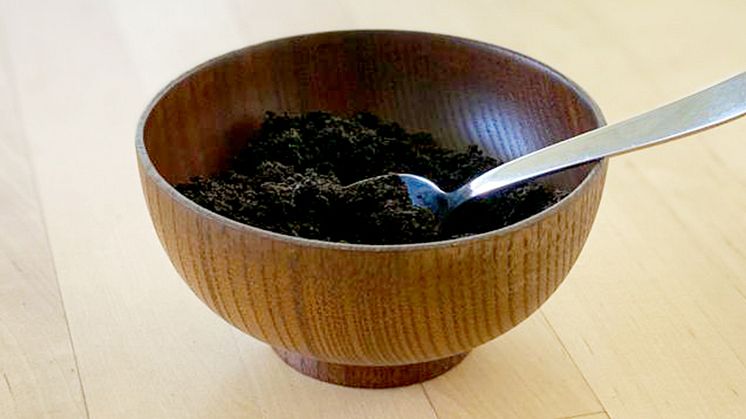
The Löfbergs group is working to close the packaging loop and contribute to a circular economy. The family-owned company recently conducted a successful test of producing fully recyclable packages made of 50% bio-based polymers. The new packaging will be used by the Danish brand, Peter Larsen Kaffe, and is approved for recycling in Denmark. It is a truly game changing package.
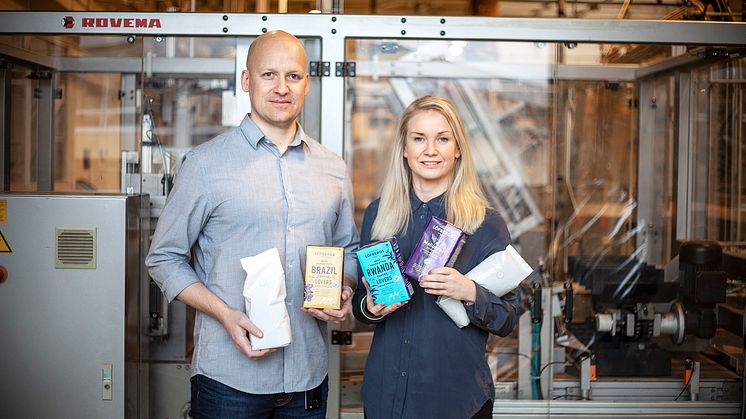
After 22 years at Löfbergs, of which 12 years as CEO, Lars Appelqvist is moving onto a new job. By the turn of the year, he will take up the position as Executive Vice President for HKScan’s operations in Sweden. Lars will remain at Löfbergs until then, which gives the company plenty of time to find his successor.
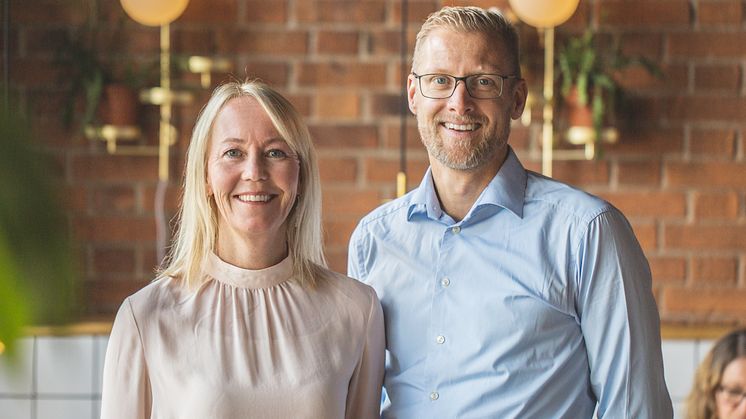
Together with our friends within International Coffee Partners (ICP) we are concerned about the possible short and long-term impact of the COVID-19 pandemic on smallholder coffee farmer families. Coffee regions in which the organization is implementing projects are increasingly affected as well.
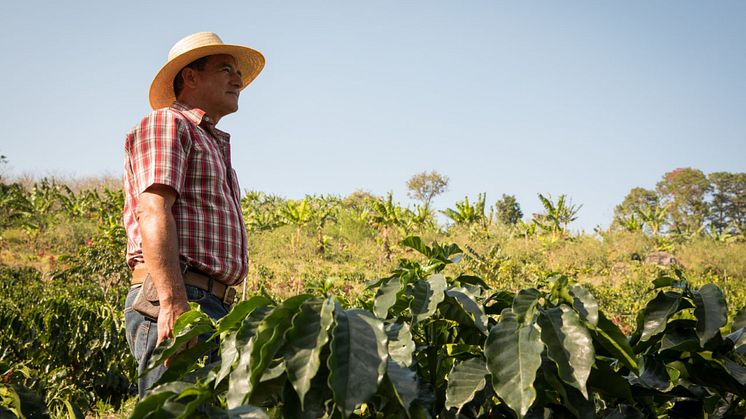
Löfbergs believes in creating and learning together with others. In 2001, Löfbergs co-founded International Coffee Partners together with a number of other family-owned coffee companies. In a new serie of videos International Coffee Partners shares the motivations and aims behind the work.
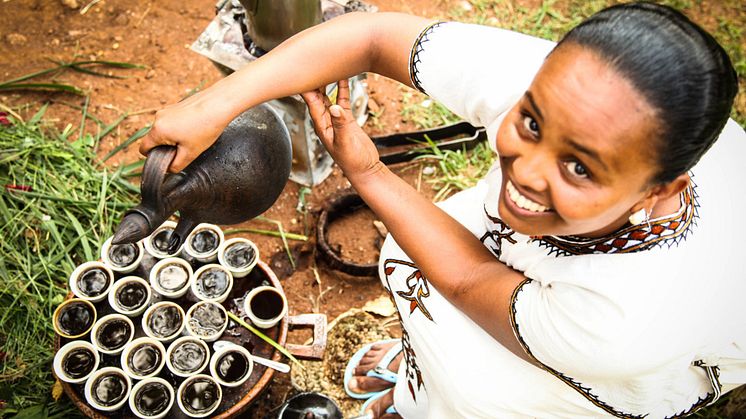
While worldwide coffee consumption is growing, the inequalities in the supply chain are becoming even more significant. Smallholder farmers, who do most of the work, earn the least money, while large companies capture most the profit. This coffee paradox is well-known, but we still haven’t seen the solutions for a real change.
